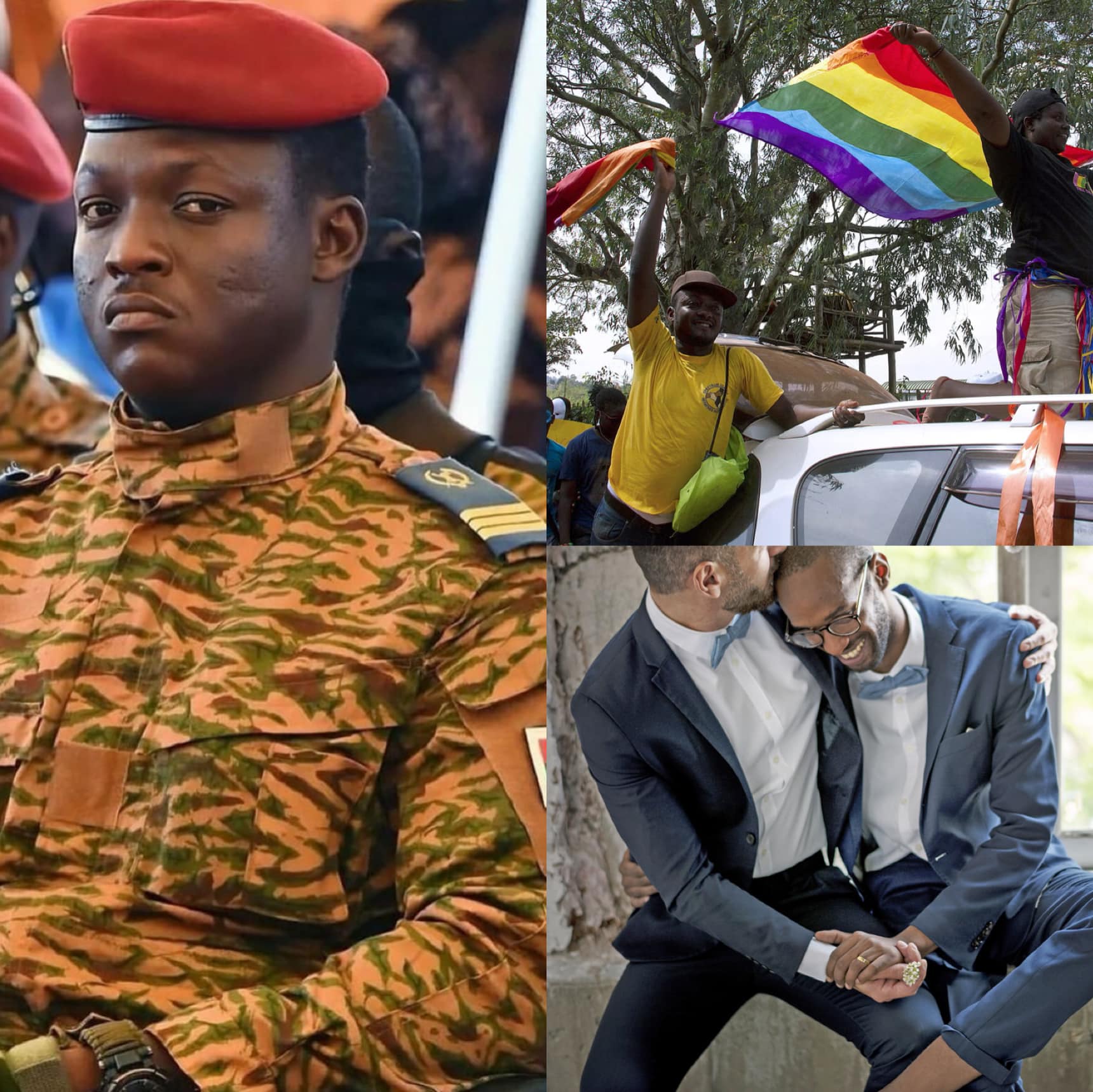
Ibrahim Traore Bans Same-Sex Marriage in Burkina Faso: A Cultural Clash or Colonial Legacy?

A recent X post from African Hub, dated April 18, 2025, has sparked heated discussions online by announcing Burkina Faso’s decision to officially ban same-sex marriage under the leadership of Ibrahim Traore.
The post highlights Traore’s stance that such unions contradict African cultural values, with legal consequences for those who defy the new law.
Accompanied by a collage of images—a stern-looking soldier in camouflage, a rainbow flag being waved, a joyful same-sex couple, and a celebratory scene—the post visually captures the tension between state authority and individual freedoms.
Replies to the post reveal a deeply divided audience, with some supporting Traore’s decision as a defense of tradition, while others argue it distracts from more pressing national issues like economic development.
This announcement reflects a broader trend across Africa, where attitudes toward LGBTQ+ rights remain complex and often contentious.
Historically, Burkina Faso was one of 22 African nations—out of 54—where same-sex relationships were not criminalized, a legacy of its independence from France in 1960, which unlike British colonies, did not impose anti-homosexuality laws.
However, a 2024 BBC report noted that Burkina Faso’s military junta, which seized power in 2022, has been moving toward stricter policies, including this ban on homosexual acts as part of an overhaul of marriage laws.
The new legislation, which awaits approval from the military-controlled parliament, will only recognize religious and customary marriages, aligning with the country’s demographic makeup—64% Muslim, 26% Christian, and 10% following traditional beliefs or no religion.
This shift also coincides with Burkina Faso’s geopolitical pivot toward Russia after reducing ties with France, signaling a broader rejection of Western influence, which some leaders associate with the push for LGBTQ+ rights.
The narrative of protecting “African culture” is central to Traore’s justification, a sentiment echoed by several X users in the thread. One reply praised Traore for resisting “demonic Western values,” while another thanked African leaders for rejecting such “nonsense.”
However, this perspective clashes with historical evidence that challenges the idea of queerness as inherently un-African. A 2023 article from Democracy in Africa reveals that pre-colonial African societies often had diverse attitudes toward queer identities, with many embracing sexual fluidity and gender nonconformity in various contexts.
The article argues that the rejection of queerness as “un-African” is a colonial construct, rooted in European-imposed heteronormativity that erased or suppressed indigenous practices.
This historical revisionism suggests that Traore’s ban may be less a defense of African tradition and more a perpetuation of colonial legacies—a point raised by critics in the X thread who accuse him of ignoring Burkina Faso’s own history.
Beyond cultural debates, some replies highlight more pragmatic concerns. One user suggested Traore should focus on development, pointing to Burkina Faso’s economic struggles, including an external debt that reached approximately $5.6 billion by late 2024, according to economic data.
Another warned of potential foreign plots against Traore due to Burkina Faso’s gold reserves, reflecting the country’s geopolitical tensions.
Meanwhile, voices advocating for LGBTQ+ rights, such as a user who noted Africa’s pre-colonial acceptance of queerness, argue that Traore’s policy is a step backward, ignoring the privacy and dignity of individuals.
This debate underscores a broader African struggle: balancing cultural identity with modern human rights, all while navigating the lingering effects of colonialism and contemporary global pressures.
Traore’s decision, while popular among some, risks deepening social divides in a nation already grappling with instability.


